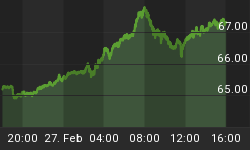In Indebted Dragon, Professor Lynette Ong from the University of Toronto discusses how the Chinese economy relies on land as collateral to borrow money while paying the interest on the loans by selling and leasing the land.
Ong notes this makes China susceptible to two problems: a real estate bubble and political instability stemming from displaced farmers who land has been taken from them.
The subtitle to Ong's article is "The Risky Strategy Behind China's Construction Economy."
I suggest "Ponzi Scheme" is a more apt description than "Risky Strategy". Let's take a closer look.
For four decades, the Chinese economy has grown by between seven and ten percent each year. It is the envy of the world, despite its relatively sluggish recent performance. Visitors to Beijing, Shanghai, and other major Chinese cities are quickly awed by impressive skyscrapers, glittering shopping malls, new highways, and high-speed rail lines, all of which leave the impression that China is a developed economy -- or at least well on its way to becoming one. Even in some smaller cities in inland provinces, government buildings make those in Washington and Brussels appear meager. In an area of Anhui Province that is officially designated an "impoverished county," the government office block looks exactly like the White House, only newer and whiter.
Underwriting the impressive facade, however, is an incredibly risky strategy. Governments borrow money using land as collateral and repay the interest on their loans using funds they earn from selling or leasing the same land. All this means that the Chinese economy depends on a buoyant real estate market to keep grinding. If housing and land prices fall dramatically, a fiscal or banking crisis would likely soon follow. Meanwhile, local officials' hunger for land has displaced millions of farmers, leading to 120,000 land-related protests each year.
RISKY BUSINESS
The recklessness can be traced to two things: First, local Chinese officials are evaluated for promotions and other rewards based on how well the economy they manage performs. Construction and real estate activities are among the most straightforward ways to stimulate growth. White-elephant construction projects thus offer eager officials a perfect opportunity to impress their political superiors, even if massive developments do not necessarily make any economic sense. Take, for example, the city of Ordos in Inner Mongolia: Its elaborate urban infrastructure and its sea of new flats and office blocks are nearly all unoccupied, making it China's largest ghost city.
SHOW XI THE MONEY
On the surface, banks' balance sheets have remained healthy despite these debts, since banks tend to roll over or "ever green" loans by issuing new loans to help borrowers "repay" old ones. In addition, local governments have been able to make their interest payments using their land as collateral.
Classic Ponzi Behavior
Perpetually rolling over an ever-growing number of loans to pay off prior loans is classic Ponzi behavior.
SOEs and Overstated GDP
Ong concludes with ...
"Given slower growth rates and falling real estate prices this year, the frequency of land expropriation is slowing down. But the truth remains that much of urbanization in China is a state-driven phenomenon, using resources drawn from the financial sector.
Although the central government recognizes the seriousness of the problem, it seems to lack any real resolve to tackle the issue head on. Muddling through seems to be so much easier. So until a major slowdown in the economy happens, the Chinese real estate market will continue on its current course."
The first two sentences are undoubtedly true. State-Owned-Enterprises (SOEs) are a huge drain on the real Chinese economy while making GDP look far better than it really is.
For more on the overstatement of Chinese GDP, please see How Sustainable are China's Copper, Cotton, Steel Imports? What About Chinese Purchases of Canadian and Australian Real Estate? Fresh Thinking on Balance of Payments
Ghost Malls, Ghost Cities, Infrastructure Malinvestment
As noted by Ong, and on numerous occasions by me, China is home to numerous vacant cities. For a discussion, please see World's Biggest Property Bubble: China's Ghost Cities Revisited; 64 Million Vacant Properties
The Video of Ghost Cities is a must see eye-opener for those overly bullish on China.
China is also home to the world's largest shopping mall and it sits empty. For a discussion and video, please see How Will China Handle The Yuan?
A week ago I reported Sky City: China to Build World's Tallest Building, 220 Stories, in 90 Days
Unlike Ong, I see no realistic way China can "muddle through" for much longer given the bubble is busting in China right now, but that is my only objection to a very well written article.















